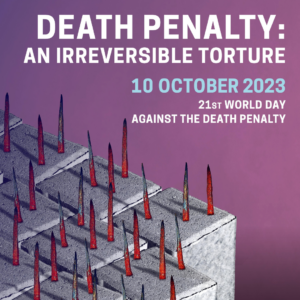
Zimbabwe Constitutional Court Declares Life Without Parole To Be Cruel and Inhuman
- News
- 13 Sep 2016
In the opinion of all eight judges, the “unavoidable cruelty of incarceration”, without a prisoner being able to believe in the realistic possibility of his eventual liberation, would “unnecessarily aggravate and dehumanise the delivery of corrective justice”.
This decision adds to the increasing number of jurisdictions worldwide in which sentences that are irreducible, such as being passed for natural life or without parole, have been found to offend fundamental human rights.
Obediah Makoni, who has spent more than 20 years behind bars after being sentenced to life imprisonment at the age of only 19, recently challenged the country’s parole regime which excluded all life sentence prisoners, meaning that under his sentence he had no real prospect of ever being released.
In a landmark decision on 13 July 2016 the constitutional court of Zimbabwe ruled that periodic reviews of detention and rehabilitation programs with a view to re-integration into society must be provided equally to prisoners serving indefinite terms of imprisonment. It held that any imprisonment that continued unreasonably – that is beyond the duration of detention necessary to fulfil the aims of punishment, deterrence and rehabilitation – was liable to be quashed by the courts. Consequently, the parole regime must be interpreted as applying to all long-term prisoners and not just those with fixed term sentences.
The Court ordered that a full inquiry and report by the Parole Board be prepared to determine Mr Makoni’s aptitude and suitability for parole. It would then be a matter for the Parole Board to make such recommendations as it may deem fit and proper, and thereafter for the Minister of Justice to decide whether or not to release Mr Makoni on licence.
Related articles:
International human rights advocacy and the abolition of irreducible life imprisonment in Zimbabwe, AfricLaw, Andrew Novak, 13th September 2016
Notes to editors
The Death Penalty Project assisted local lawyer Tendai Biti, who was instructed by Zimbabwe NGO Veritas, in this case. Joseph Middleton of Doughty Street Chambers and Amanda Clift-Matthews (In-house counsel) were instructed by The Death Penalty Project and advised on a pro bono basis.



















